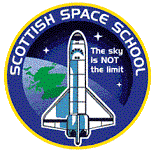WATCH again: See our Glow meet live from Rio+20 where young people from across Scotland put questions to Stewart Stevenson MSP, Minister for the Environment and Climate Change.
What are your green dreams for the future?
 Between 20-22 June 2012 world leaders will gather in the Brazilian city of Rio for crucial talks at the United Nations Conference on Sustainable Development. The conference, referred to as Rio+20, will mark 20 years since the historic Earth Summit in the same city in 1992 which put issues such as climate change and the protection of biodiversity on the map and gave birth to Agenda 21 – an action plan for a sustainable future which was adopted by national governments, cities and local authorities across the world. The establishment of the international Eco-Schools movement was another practical outcome of this process.
Between 20-22 June 2012 world leaders will gather in the Brazilian city of Rio for crucial talks at the United Nations Conference on Sustainable Development. The conference, referred to as Rio+20, will mark 20 years since the historic Earth Summit in the same city in 1992 which put issues such as climate change and the protection of biodiversity on the map and gave birth to Agenda 21 – an action plan for a sustainable future which was adopted by national governments, cities and local authorities across the world. The establishment of the international Eco-Schools movement was another practical outcome of this process.
The 1992 Earth Summit achieved much but clearly there are still many challenges to be addressed if we are to build a safer, more equitable, cleaner, greener and more prosperous world for all.
The hopes and expectations for Rio+20 are high and the preparations have highlighted seven priority areas including: decent jobs, energy, sustainable cities, food security and sustainable agriculture, water, oceans and disaster readiness. Rio+20 is a chance to move away from business-as-usual and to take bold steps to end poverty and address environmental destruction.
Sustainability in Scotland
The document, A Flourishing Scotland, produced for Rio+20 outlines the many achievements we should celebrate with regards to Scotland’s success in promoting sustainable development education. IN the context of the Rio Summit it may be of interest to note that Chapter 36 of the Agenda 21 document, which focussed on education, was written by a Scot – Professor John Smyth.
However, other key achievements nationally include: the embedding of sustainable development education, global citizenship and outdoor learning within Curriculum for Excellence; we also have one of the most successful Eco-Schools programme in the world with over 98% of local authority school registered; and Scotland has shown leadership on a world stage by introducing ambitious targets on climate change and in planning for our transition to a low-carbon economy. By 2020 it is estimated that 130,000 people will be employed in low carbon and green industries in Scotland and that renewable energy will provide 100% of our energy needs. Scotland is also the only county in the world to have debated the issue of climate justice in its parliament.
Whilst much has been achieved, there is still work to be done. Nevertheless, there is a real opportunity for Scotland to show leadership on a world stage with regards to its commitment to sustainable development and to set an example for other nations to follow.
What you can do
Our ambition is that every learner in Scotland recognises themselves as a global citizen; has a strong commitment to living sustainably and has an enthusiasm for the outdoors and nature.
You can help by ensuring that global citizenship, sustainable development education and outdoor learning are on your school improvement plan and embedded in your curriculum. Make these areas the responsibility of everyone in your school, not just the eco-warrior or group, so your school can adopt a successful whole school approach and make an impact on every learner.
Professional learning – read Learning for Change: Scotland’s Action Plan for the United Nations Decade of Education for Sustainable Development and make use of our resources on sustainable development education, global citizenship and outdoor learning.
Join our online community to share practice and ideas with other practitioners around Scotland and engage in professional dialogue.
Activity ideas
Raise the profile of the conference in your own school or community – organise your own version of the Rio+20 conference.
Invite learners to develop their green dreams – what is their vision of a more sustainable future? What would they like to see happen in the next 20 years? What would their message to world leaders be?
Web links
Official website of the Rio+20 Summit
Twitter – follow the conversation at #Rioplus20
My green dream – add your voice and dream to thousands of others
Education Scotland Online
Sustainable development education pages and videos
Global citizenship resources
Outdoor learning resources
Weather and Climate Change
Exploring Climate Change
Schools Global Footprint
Resources
Keep Scotland Beautiful and the Scottish Sustainable Development Forum have created a Rio+20 resource pack for schools and youth groups. This resource pack can be downloaded from the Eco-Schools Scotland website. Hard copies, plus the accompanying DVD, can be ordered via email: kelly.johnstone@ksbscotland.org.uk
WWF has produced a free Rio+20 teaching resource and associated competition for young people aged 11-14 years. Download for free at: www.wwf.org.uk/futures
Download the special edition Living Planet Report – On the Road to Rio produced by WWF.
Stop Climate Chaos has produced Rio+20 resources for students and teachers. Download from: http://www.stopclimatechaos.org/rc-youth
![rescue_helicopter_540[1]](http://ltsblogs.org.uk/glowscotland/files/2012/06/rescue_helicopter_5401-300x116.jpg) The Ready for Emergencies website which launches on the 13th June is a new and exciting context for learning in line with Curriculum for Excellence.
The Ready for Emergencies website which launches on the 13th June is a new and exciting context for learning in line with Curriculum for Excellence.









































